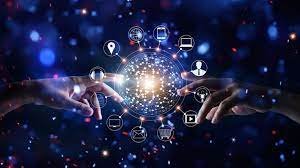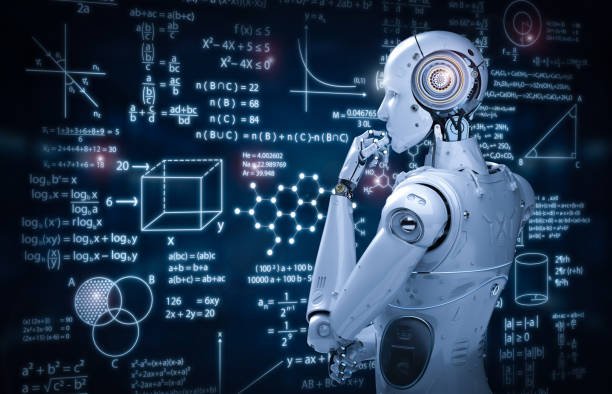The Pulse of Progress How Technology Continues to Reshape Our World
In the 21st century, technology is not just a tool—it is the pulse that drives innovation, communication, and economic transformation. From artificial intelligence to space exploration, advancements are occurring at breakneck speed, reshaping how we live, work, and interact.
Key Areas of Modern Technological Innovation
Today, technological growth is accelerating at an unprecedented pace. Here are some of the most impactful fields leading the charge:
1. Artificial Intelligence (AI) and Machine Learning
AI has emerged as one of the most transformative technologies of the 21st century. It powers applications that mimic human intelligence—such as voice recognition, natural language processing, and decision-making systems.
Machine learning, a subset of AI, allows systems to learn from data and improve over time without being explicitly programmed. From predictive analytics in healthcare to autonomous vehicles and personalized recommendations on streaming platforms, AI is integrated into our everyday lives.
2. The Internet of Things (IoT)
IoT connects physical devices—such as smart home appliances, wearables, and industrial sensors—to the internet, enabling them to collect and exchange data. This connectivity allows for automation and smarter decision-making.
For example, smart thermostats can learn a user’s schedule and adjust heating or cooling accordingly, while cities use IoT for traffic management and energy conservation. In industries, IoT enhances productivity, maintenance, and safety through real-time data monitoring.
3. Blockchain and Decentralized Technologies
Blockchain technology, best known for enabling cryptocurrencies like Bitcoin, offers secure and transparent record-keeping without the need for intermediaries. Its decentralized nature makes it ideal for applications in finance, supply chains, healthcare, and more.
Smart contracts—self-executing contracts with the terms written into code—are revolutionizing business transactions by reducing the need for manual intervention and increasing trust.
4. Biotechnology and Health Tech
The intersection of technology and biology is opening new frontiers in medicine. Innovations such as CRISPR gene editing, telemedicine, wearable health monitors, and AI-powered diagnostics are improving patient care and extending life expectancy.
The COVID-19 pandemic accelerated the adoption of telehealth and remote patient monitoring, making healthcare more accessible, especially in remote areas.
5. Renewable Energy Technologies
As the world grapples with climate change, technological innovation in renewable energy is becoming crucial. Advances in solar panels, wind turbines, battery storage, and smart grids are making clean energy more efficient and affordable.
Electric vehicles (EVs), led by companies like Tesla, are gaining popularity and contributing to a reduction in greenhouse gas emissions. Governments and businesses are investing in sustainable technologies to meet carbon neutrality goals.
Technology in Everyday Life
Technology has radically changed everyday human experiences. Here’s how:
Communication and Connectivity
The rise of smartphones, social media, and video conferencing has made it possible to connect with anyone, anywhere, in real time. Messaging apps, platforms like Zoom, and social networks have redefined social interaction, business collaboration, and education.
Education and E-Learning
Technology has democratized education. Online courses, educational apps, and virtual classrooms allow people of all ages and backgrounds to access quality education from their homes. Platforms like Coursera, Khan Academy, and edX offer courses from leading universities to anyone with an internet connection.
Commerce and Finance
E-commerce platforms such as Amazon, Alibaba, and Shopify have transformed how we shop. Meanwhile, digital banking, fintech apps, and cryptocurrencies are reshaping how we handle money, invest, and make transactions.
Entertainment and Media
Streaming services like Netflix, Spotify, and YouTube have changed how we consume media. Artificial intelligence curates content based on user preferences, while immersive technologies like virtual reality (VR) and augmented reality (AR) are enhancing the entertainment experience.
Ethical and Social Implications
With great power comes great responsibility. As technology continues to evolve, it raises important ethical and social questions:
-
Privacy and Surveillance: The widespread use of data analytics and facial recognition has sparked debates about surveillance and personal privacy.
-
Digital Divide: Not everyone has equal access to technology, creating gaps in education, income, and opportunity—especially in developing nations.
-
Automation and Employment: While automation boosts efficiency, it also threatens traditional jobs. Reskilling and education will be key to preparing workers for the digital economy.
-
AI Ethics: Ensuring that AI systems are transparent, fair, and unbiased is critical, especially in areas like criminal justice, hiring, and healthcare.
The Future of Technology
The future holds exciting possibilities, many of which are already in development:
-
Quantum Computing: Promises exponential processing power that could revolutionize fields like cryptography, materials science, and complex simulations.
-
Brain-Computer Interfaces (BCIs): Companies like Neuralink are working on technology to connect the human brain directly to computers, potentially enabling new forms of communication and healing.
-
Space Technology: Private companies like SpaceX and Blue Origin are pushing the boundaries of space travel, with the goal of colonizing other planets and making space tourism a reality.
-
Metaverse and Virtual Worlds: The concept of interconnected digital environments where users can interact, work, and play is being explored by tech giants like Meta (formerly Facebook). While still in its early stages, the metaverse could redefine digital interaction.
Conclusion
Technology is the defining force of our time. It enhances productivity, improves lives, and offers solutions to some of the world’s most pressing challenges. However, it also comes with responsibilities—ensuring inclusivity, protecting privacy, and addressing ethical concerns.
As we move forward, the key will be to use technology not just for innovation’s sake, but for creating a better, more equitable future. With thoughtful planning, ethical frameworks, and global collaboration, technology can continue to be a powerful force for good.




